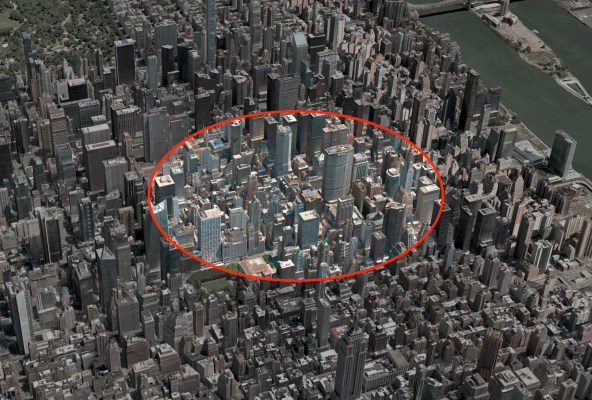A New York bill that would ban state law enforcement from obtaining residents’ private user data from tech giants through the use of controversial search warrants will get another chance, two years after it was first introduced.
The Reverse Location Search Prohibition Act was reintroduced to the New York Assembly and Senate last year by a group of Democratic lawmakers after the bill previously failed to pass. Last week, the bill was referred to committee, the first major hurdle before it can be considered for a floor vote.
The bill, if passed, would be the first state law in the U.S. to end the use of geofence warrants and keyword search warrants, which rely on asking technology companies to turn over data about users who were near the scene of a crime or searched for particular keywords at a specific point in time.
For geofence warrants — also known as “reverse location” warrants — law enforcement asks a judge to order Google, which collects and stores billions of location data points from its users’ phones and apps, to turn over records on whose phones were in a certain geographical radius at the time of a crime to help identify possible suspects. Geofence warrants are a uniquely Google problem; law enforcement knows to tap Google’s databases of location data, which the search giant uses to drive its ads business, last year netting the company close to $150 billion in revenue.
It’s a similar process for Google searches; law enforcement asks a judge for a warrant to demand that Google turns over who searched for certain keywords during a particular window of time. Although less publicly known, keyword search warrants are in growing use and aren’t limited to just Google; Microsoft and Yahoo (which owns TechCrunch) have also been tapped for user data using this kind of legal process.
The use of these warrants has been called “fishing expeditions” by internet rights groups like the Electronic Frontier Foundation, which recently lent its support to the New York bill, along with the ACLU. Critics say these kinds of warrants are unconstitutionally broad and invasive because they invariably collect data on nearby innocent people with no connection to the crime.
TechCrunch reported last year that Minneapolis police used a geofence warrant to identify protesters accused of sparking violence in the wake of the police killing of George Floyd in 2020. Similar encounters reported by NBC News and The Guardian revealed how entirely innocent people have been tacitly accused of criminality simply for being close to the scene of the crime.
According to data published by Google, geofence warrants make up about one-quarter of all U.S. legal demands it receives. Since Google became widely known among law enforcement as a source for connecting location data and search terms to real-world suspects, Google processed more than 11,500 geofence warrants in 2020, up from less than a thousand in 2018 when the practice was still in its relative infancy.
New York state accounted for about 2-3% of all geofence warrants, amounting to hundreds of warrants in total.
Zellnor Myrie, a New York state senator who represents central Brooklyn and sponsored the Senate bill, told TechCrunch: “In dense, urban communities like the ones I represent in Brooklyn, hundreds or thousands of innocent people who merely live or walk near a crime scene could be ensnared by a geofence warrant that would turn over their private location data. And keyword search warrants would identify users who have searched for a specific term, name or location. Our bill would ban these types of warrants and protect New Yorkers’ privacy.”
